Live on the homepage now!
Reader Supported News
Follow us on facebook and twitter!
PO Box 2043 / Citrus Heights, CA 95611
Live on the homepage now!
Reader Supported News
Follow us on facebook and twitter!
PO Box 2043 / Citrus Heights, CA 95611
Live on the homepage now!
Reader Supported News
Last year, there were a record 227 killings globally. It is our duty to keep resisting the insatiable forces that led to their deaths
Every time, the data hits me like a blow to the face. I’ve spent much of my life as an environmental activist and journalist, and so if I haven’t actually met the people sadly on this list, I’ve met hundreds exactly like them. Strong local people, attached to place and community, seeing their role in defending terrain and ancestral territory. Every person like this around the world is at risk.
And they are at risk, in the end, not so much because of another local person who pulls the trigger or plunges the blade; they’re at risk because they find themselves living on or near something that some corporation is demanding. Like Fikile Ntshangase, the South African grandmother who led a spirited campaign against a coalmine in KwaZulu-Natal province and was shot dead in her home last year. Or Óscar Eyraud Adams, the indigenous activist who, during Mexico’s worst drought in 30 years, vocally advocated for his community’s right to water, as the authorities denied them and granted corporations ever more permits. Oscar was shot dead in Tecate last September.
The demand for the highest possible profit, the quickest possible timeline, the cheapest possible operation, seems to translate eventually into the understanding, somewhere, that the troublemaker must go. The blame rarely if ever makes its way back up to a corporation’s HQ. But it should. Especially since the people who inhabit these places never really share in the riches produced there: colonialism is still running strong, even if it’s dressed up with corporate logos or hidden with offshore bank accounts.
Meanwhile, the rest of us need to realise that the people killed each year defending their local places are also defending our shared planet – in particular our climate. The activities that flood our atmosphere with carbon – fossil fuel extraction and deforestation – are at the heart of so many of these killings. When people stand up to block a pipeline, or an illegal mine, or a new plantation slated for an old forest, they are also standing in the way of the activities that threaten us all. They make life harder for the oil companies and the timber barons, and in so doing strive to safeguard all of us from incessant temperature increases.
And as we try to head off that rise by moving to more benign technologies, such as solar panels and electric cars, we’ll need to do so in ways that don’t create the same kind of sad sagas – cobalt mining or lithium production can be exploitative, too. If we took seriously the stories told in the Global Witness report, we surely would be able to better design these emerging industries.
Great respect is due to those who are working to develop corporate codes of conduct, or industry-wide standards, or government regulations – those are the tools that can help rebalance power, so that people can stand up to exploiters with less fear of being killed. But since we live in a world where greenwashing is a constant threat, let’s be clear: the worth of those codes and standards and regulations is not the words themselves, or the promises their sponsors proudly make. Their worth is measured entirely in outcomes, like reducing threats against land and environmental defenders.
What does progress on the climate crisis look like? One wants so badly to pick up this annual report some year and see that the answer to that question is: fewer killings. That violence is trending dramatically down, that the deaths have begun to fall – it would be as satisfying as watching Covid cases drop in the spring. Since there’s no vaccine for the greed of the wealthy, it may be years before that happens. But we can still speed the day: you and I, armed with the stories of those lives lost, are capable of putting enough pressure on the culprits that they find it necessary to change.
None of that will bring back those defenders of the planet who have been killed. That we have to fight simply to get our leaders to pay attention to science is frustrating, but there’s a big difference between fighting and dying: the names of these activists should be on our lips and in our hearts. We owe them debts that can’t be repaid – only paid forward.
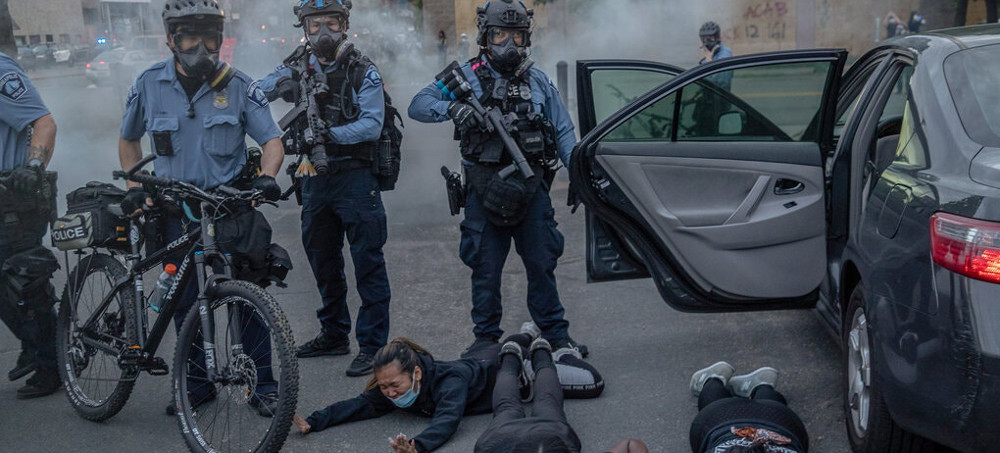 Police confront people marching to protest the murder of George Floyd in Minneapolis last year. (photo: Victor J. Blue/The New York Times)
Police confront people marching to protest the murder of George Floyd in Minneapolis last year. (photo: Victor J. Blue/The New York Times)
The review, part of the Biden administration’s efforts to make preserving civil rights protections a priority, applies to federal funding for local law enforcement agencies.
While the review concerns law enforcement funding, it could affect how the federal government oversees grant recipients in transportation, health care, education and other sectors that receive federal money.
The issue of racial discrimination in policing came to a head last year after the murder of George Floyd, a Black man, who died when a white Minneapolis police officer knelt on his neck, setting off months of nationwide protests.
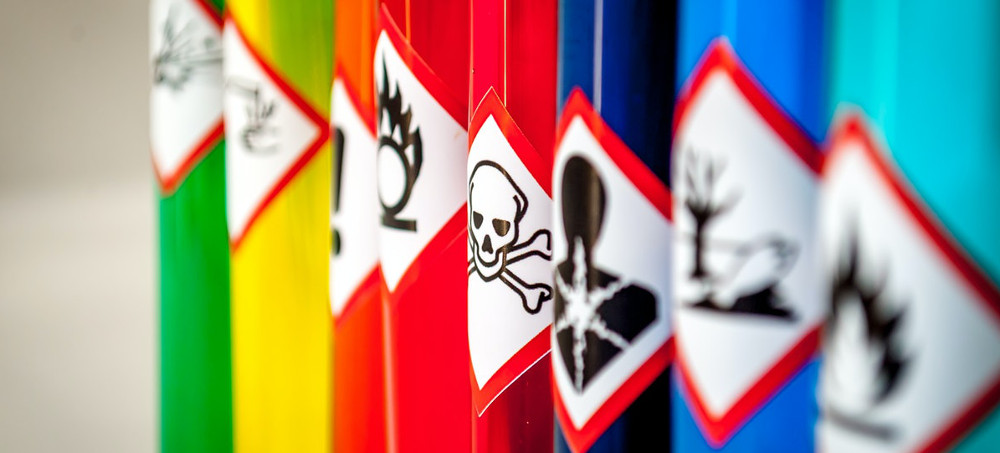 Environmental Protection Agency (EPA) data shows that the Daikin plant in Decatur, Alabama, has released the equivalent of more than 1bn pounds of carbon dioxide. (photo: Pablo Martínez Monsiváis/AP)
Environmental Protection Agency (EPA) data shows that the Daikin plant in Decatur, Alabama, has released the equivalent of more than 1bn pounds of carbon dioxide. (photo: Pablo Martínez Monsiváis/AP)
EPA data reveals that one of America’s biggest PFAS-making plants is second largest polluter of highly damaging HCFC-22 gas
In recent years, an ever-expanding body of scientific research has shown that per- and polyfluoroalkyl substances (PFAS) are among the most toxic substances widely used in consumer products.
Now the new EPA report shows that one of America’s largest PFAS manufacturing plants is also the second largest polluter of the destructive greenhouse gas HCFC-22, which is about 5,000 times more potent than carbon dioxide.
“This is a sad-but-clear example of how toxic chemicals and climate change are connected: manufacturing PFAS chemicals not only pollutes people and the environment, but releases potent greenhouse gases, adding to the climate crisis,” said Erika Schreder, co-author of the report and science director for Toxic-Free Future.
HCFC-22 emissions are banned worldwide under the Montreal Protocol, a 1987 international environmental treaty, because the chemical is so destructive to the ozone layer. The plant of the PFAS manufacturer Daikin in Decatur, Alabama, released about 240,000 pounds of HCFC-22 in 2019 – the equivalent of more than 1bn pounds of carbon dioxide, or what would be released from driving 125,000 cars every day for a year.
“It seems like you wouldn’t want to let companies release hundreds of thousands of pounds of this gas every year,” Schreder said.
Diakin’s plant is one of many PFAS plants around the country, and many of the nation’s top 50 HCFC-22 polluters are “forever chemical” manufacturers. A loophole in the Montreal treaty allows companies to release HCFC-22 when it’s used as an intermediate in production of another chemical, such as PFAS.
Daikin’s plant appears to be the nation’s only one that produces PFAS used to make food packaging water and grease resistant, Schreder said.
PFAS are also applied to a wide range of consumer products, from cosmetics to clothing to nonstick cookware. Though they make effective barriers, they are also linked to serious health problems like cancer, kidney and liver disease, birth defects, reduced immunity and more. Several states have banned their use in food packaging, and legislation to do the same will soon be introduced in Congress.
The report notes that fast-food companies use a large amount of the Daikin plant’s PFAS in their wrappers. Toxic-Free Future used Food and Drug Administration data to estimate that Burger King treats its Whopper wrappers with about 21,900 pounds of PFAS annually, and McDonald’s treats its Big Mac wrappers with about 24,700 pounds of PFAS annually.
The nonprofit uses such findings to urge companies to phase out PFAS, and so far has secured commitments from McDonald’s, Whole Foods, Chipotle, Wendy’s and more.
“When Burger King decides to continue using PFAS, it needs to know that its decision has very serious impacts on communities in Alabama … and for the planet because of the climate impact,” Schreder said.
Toxic-Free Future discovered Daikin’s “dirty secret” as it investigated other environmental threats posed by the factory. At least three workers there have died on the job, and the company has poisoned a drinking water and recreation source for tens of thousands of downstream residents. Daikin recently had to pay $5m to help local municipalities clean up PFAS contamination.
Meanwhile, paper mills that produce food packaging treated with Daikin’s PFAS can release the chemicals to nearby water and sludge. FDA data shows that each PFAS-applying mill could be responsible every day for discharges of up to about 180 pounds of PFAS directly to surface water, along with up to 1,600 pounds in sludge, the report notes.
Daikin media representatives did not respond to a request for comment.
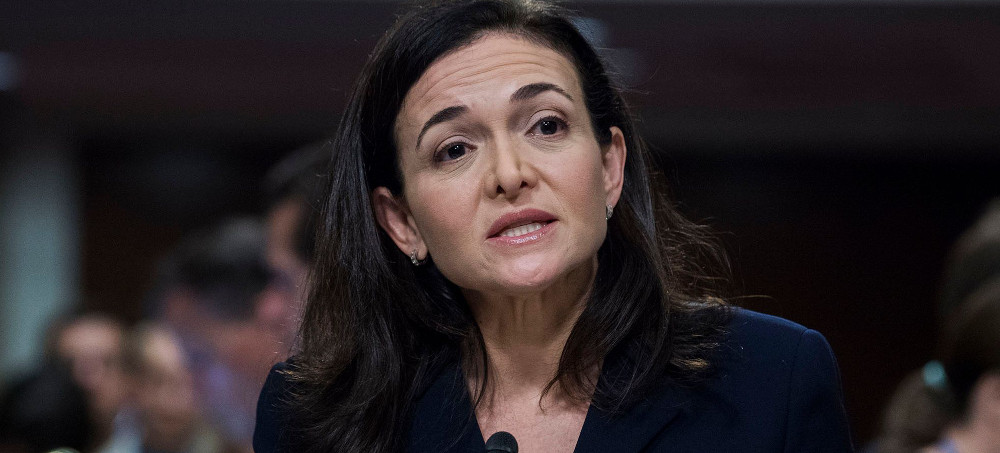 Sheryl Sandberg, Facebook's chief operating officer. (photo: David Paul Morris/Bloomberg)
Sheryl Sandberg, Facebook's chief operating officer. (photo: David Paul Morris/Bloomberg)
A series of leaked internal reports shows Facebook knows far more than it lets on. That’s by design.
Facebook knew all of those things because they were findings from its own internal research teams. But it didn’t tell anyone. In some cases, its executives even made public statements at odds with the findings.
This week, each of those revelations was the subject of a story in the Wall Street Journal, part of an ongoing investigative series that it’s calling the Facebook Files. The reporting is based on internal Facebook documents, some of which were turned over to the Journal by a person seeking federal whistleblower protection, and interviews with current and former employees, most of whom have remained anonymous.
While the stories are noteworthy in themselves, their provenance points to a deeper issue at Facebook. It is that the world’s largest social network employs teams of people to study its own ugly underbelly, only to ignore, downplay and suppress the results of their research when it proves awkward or troubling. Why it would do such a thing is a question whose answer lies at least partly in the company’s culture and organizational structure.
Like other major Internet platforms, Facebook weighs concerns about its impacts on users and society alongside traditional business imperatives such as growth, profit and marketing. Unlike some rivals, however, Facebook routes weighty decisions about content policy through some of the same executives tasked with government lobbying and public relations — an arrangement that critics say creates a conflict of interest. Often, they seem to prioritize public perception over transparency.
Facebook did not respond to a request for comment Thursday. In the past, it has responded to criticism over the role of its organizational structure by downplaying the role of any given executive and explaining that big decisions at the company receive input from multiple teams.
From its early days, Facebook has employed data scientists across various teams to study the effects of its products, and taken their findings seriously at the highest levels. In 2008, for instance, CEO Mark Zuckerberg signed off on the introduction of a “like” button only after its data scientists found in a test that it made users more likely to interact with one another’s posts, a story recounted by longtime Facebook executive Andrew Bosworth in a 2010 Quora post. In 2015, members of the company’s news feed ranking team explained to me how they rely on a dizzying array of surveys, focus groups and A/B tests to measure the impacts of any proposed change to the algorithm along multiple dimensions. Most of those findings were never publicized, but they factored heavily in the company’s decisions about which changes to implement.
More recently, Facebook has tasked its data scientists and multiple integrity and safety teams across the company with investigating questions about its products’ influence on things like global affairs, the flow of political information and users’ well-being. In at least a few cases, their findings have informed key product decisions. The 2018 Facebook news feed change around “meaningful interactions,” for one, was justified partly by appeal to research that found interacting with friends on social media was better for people’s mental health than passively watching videos.
Yet a pattern has emerged in which findings that implicate core Facebook features or systems, or which would require costly or politically dicey interventions, are reportedly brushed aside by top executives, and come out only when leaked to the media by frustrated employees or former employees.
For instance, the New York Times reported in 2018 that Facebook’s security team had uncovered evidence of Russian interference ahead of the 2016 U.S. election, but that Chief Operating Officer Sheryl Sandberg and Vice President of Global Public Policy Joel Kaplan had opted to keep it secret for fear of the political fallout. In February 2020, The Washington Post reported that an internal investigation following the 2016 election, called “Project P,” had identified a slew of accounts that had peddled viral fake news stories in the run-up to Donald Trump’s victory, but only a few were disabled after Kaplan warned of conservative backlash.
In September 2020, BuzzFeed obtained a memo written by former Facebook data scientist Sophie Zhang, making the case that the company habitually ignored or delayed action on fake accounts interfering in elections around the world. In July 2021, MIT Technology Review detailed how the company pulled the plug on efforts by its artificial intelligence team to address misinformation, out of concern that they would hurt user engagement and growth. Just last month, the company admitted that it had shelved a planned transparency report showing that its most shared link over a three-month period was an article casting doubt on the safety of coronavirus vaccines.
Kaplan, a former Republican operative, is a recurring figure in many of these accounts. His current and former bosses, Nick Clegg and Elliot Schrage, respectively, also surface at times, albeit less often. They, in turn, report to Sandberg, who is Zuckerberg’s right hand.
Part of the issue, insiders say, may be the scope of these executives’ roles. As policy chief, Kaplan has input into decisions about how to apply Facebook’s rules, while also overseeing its relations with political leaders in D.C. — a mandate that all but ensures political considerations shape the platform’s policy choices. Clegg, meanwhile, oversees both policy and communications, weighing not only politics but PR concerns in evaluating which policies to pursue.
In contrast, Twitter’s then-vice president of global communications, Brandon Borrman, told me in 2020 that his company sends decisions about content enforcement, trust and safety, such as the call to fact-check one of Trump’s tweets for the first time, up a chain of command that is separate from its political and public relations divisions. Borrman said that he and the company’s top government relations executive were briefed on the decision only after CEO Jack Dorsey had accepted the trust and safety team’s recommendation.
Alex Stamos, Facebook’s former chief security officer who struggled to publicize his team’s findings on Russian election interference, has argued Facebook’s organizational structure helps to explain why all kinds of well-intentioned internal studies and projects at the company never see daylight. (Stamos now researches cybersecurity at the Stanford Internet Observatory.)
“I keep talking about how organizational design is a huge problem at Facebook,” Stamos tweeted Wednesday, after the third report in the Journal’s Facebook Files series. “In these cases, the unified product policy/government affairs structure and the isolation of people who care in dedicated Integrity teams are the problem. And Zuck.”
The last line of that tweet is a reference, of course, to Zuckerberg, who emerges in Sheera Frenkel and Cecilia Kang’s recent book “An Ugly Truth: Inside Facebook’s Battle for Domination” as the driving force behind a company culture that has long prioritized growth and dominance over concerns of societal harms.
Sandberg, for her part, is portrayed in the same book as averse to confrontation and unable or unwilling to stand up to Zuckerberg and Kaplan on pivotal decisions. Her private conference room at Facebook’s headquarters long bore a sign that said “Only good news,” according to numerous reports — a credo that may go a long way toward explaining why uncomfortable internal research findings struggle to find an audience.
Robyn Caplan, a researcher at the nonprofit Data & Society, said she has repeatedly found over the years that online platforms’ struggles and inconsistencies with content moderation have their roots in corporate organizational dynamics that emerged from start-up culture. In many cases, Facebook will consult with internal and external researchers on how to address a problem, only for their advice to be overridden by more influential internal stakeholders, such as the leaders of their product, engineering or business divisions.
Caplan said the report that Facebook applied different tiers of content moderation practices to influential and ordinary users is symptomatic of a widespread practice in social media — one that prioritizes avoiding bad press over treating users fairly. “That’s an instance in creating a set of policies or processes designed to make the most (potentially) vocal critics happy, while undercutting needs of other users and groups,” she said. Caplan investigated a similar system at YouTube in a 2020 white paper that she co-authored with Tarleton Gillespie, a principal researcher at Microsoft Research.
For an approach that’s intended to avoid bad press, Facebook’s penchant for suppressing inconvenient internal research has itself generated a remarkable amount of, well, bad press.
As the latest batch of leaked internal critiques continues to trickle out, the company faces a choice. It could rethink its philosophy, realign its internal structure to separate policy from politics, and begin to pay greater heed to the trust and safety researchers and data scientists in its ranks. Alternatively, it could decide that such research creates more headaches than it’s worth, and limit the amount of self-critical projects it undertakes in the first place. Or it could carry on with the status quo, weathering this round of bad publicity and regulatory pressure as it has all the others before it — and likely continuing to rake in the enormous profits that have remained a constant through it all.
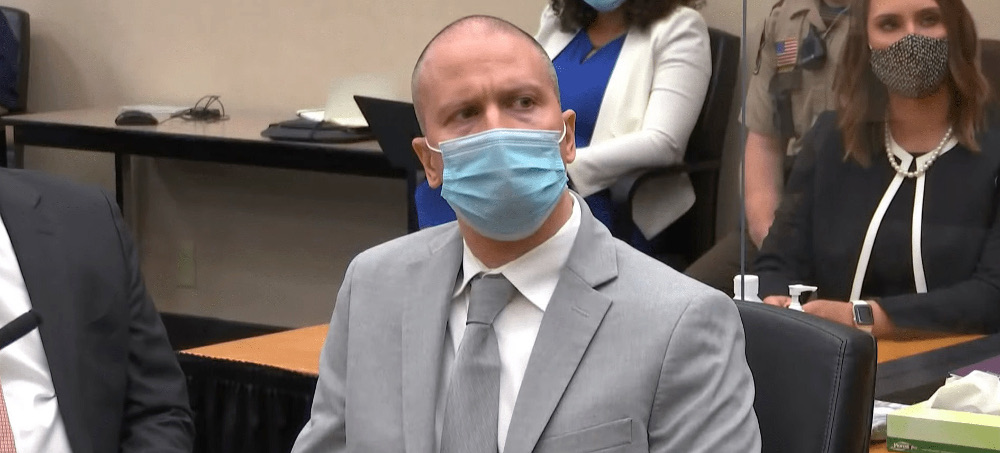 Former Minneapolis police Officer Derek Chauvin, right, addresses Hennepin County Judge Peter Cahill at the Hennepin County Courthouse in Minneapolis in April. (photo: AP)
Former Minneapolis police Officer Derek Chauvin, right, addresses Hennepin County Judge Peter Cahill at the Hennepin County Courthouse in Minneapolis in April. (photo: AP)
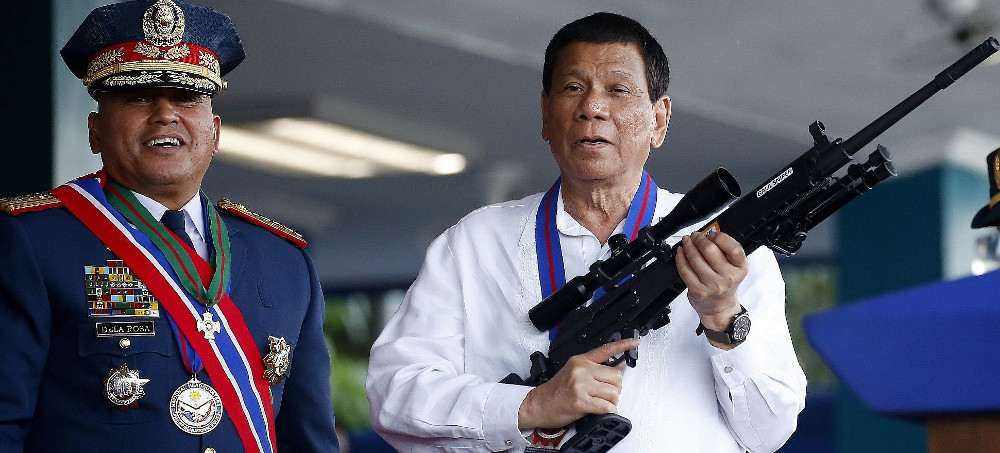 Philippine president Rodrigo Duterte has repeatedly claimed the ICC has no jurisdiction over him. (photo: EPA)
Philippine president Rodrigo Duterte has repeatedly claimed the ICC has no jurisdiction over him. (photo: EPA)
The Hague-based court says ‘specific legal element of the crime against humanity of murder’ has been met in the crackdown that killed thousands in Philippines.
In a statement issued on Wednesday, the Hague-based tribunal said there was “reasonable basis” to proceed with the probe noting that “specific legal element of the crime against humanity of murder” has been met in the crackdown that left thousands dead.
The ICC’s pre-trial chamber also said that while it recognises the Philippines’ duty to fight drug smuggling and addiction, the “so-called ‘war on drugs’ campaign cannot be seen as a legitimate law enforcement operation, and the killings neither as legitimate nor as mere excesses in an otherwise legitimate operation”.
The order to investigate was signed by Judges Péter Kovács, Reine Adélaïde Sophie Alapini-Gansou and María del Socorro Flores Liera.
The court said that its judges considered the evidence presented on behalf of at least 204 victims, and what they found suggested that a “widespread and systematic attack against the civilian population took place pursuant to or in furtherance of a state policy”.
The ICC also noted that they have reviewed supporting materials that indicate that Philippine authorities “failed to take meaningful steps to investigate or prosecute the killings.” It also noted that that perpetrators of the killings were even offered “cash payments, promotions or awards for killings in the so-called ‘war on drugs’ campaign.”
Former ICC prosecutor Fatou Bensouda filed the request to investigate just before her retirement in June, alleging that “state actors, primarily members of the Philippine security forces, killed thousands of suspected drug users and other civilians during official law enforcement operations.”
Bensouda’s successor, Prosecutor Karim Khan, will now oversee the actual probe and possible trial of the case.
When Bensouda’s recommendation was announced in June, Duterte dismissed the news saying it was “bulls**t” while threatening to “slap” the ICC magistrates.
In an interview with DZBB, a Manila-based radio station on Thursday, Salvador Panelo, the president’s legal counsel repeated previous statements staying that the Duterte administation will not cooperate with the investigation.
Panelo also said that ICC investigators would not be permitted to enter the country to conduct the probe.
Hearing the news of the ICC decision, Llore Pasco, a resident of Metro Manila whose two sons were killed in May 2017, said she is relieved that the case is moving forward. She was one of the mothers who petitioned the ICC to investigate the deadly “war on drugs”.
“God is great. I feel some sense of relief and happiness. Now there’s hope that the victims can attain justice, and those who committed the crimes will be punished,” she told Al Jazeera on Thursday.
‘Reign of terror’
Duterte ran for president in 2016 on a single issue of fighting crime in the Philippines. During his campaign and later on as president, he repeatedly urged police to “kill” drug suspects.
After taking office on June 30, 2016, he immediately launched his deadly campaign described by the country’s Catholic leaders as a “reign of terror”.
The latest government data released in June shows that as of the end of April 2021, police and other security forces have killed at least 6,117 suspected drug dealers during its operations. But government figures cited by the UN in June 2020 already showed at least 8,600 deaths.
A Philippine police report in 2017 also referred to 16,355 “homicide cases under investigations” as accomplishments in the drugs war.
In December 2016, Al Jazeera reported more than 6,000 deaths in the drug war, raising questions about the inconsistency of the government’s record-keeping system and the possible “manipulation” of government data.
Human rights groups say the number of deaths could be between 27,000 and 30,000. They accuse the authorities of carrying out summary executions that killed innocent suspects, including children.
Among those killed were at least 73 children, with the youngest just five months old, according to a UN investigation. Countless people were also killed by “unknown” gunmen, who later turned out to be police officers, according to news reports. Only very few of the thousands of cases reported were prosecuted.
Withdrawal from ICC
In response to the initial move of the ICC to look into the drug war in the Philippines, Duterte withdrew the Philippines’s membership from the ICC in March 2018. The decision came into force exactly a year later in 2019.
When he announced he was going to withdraw from the court, Duterte defended his crackdown, saying it was “lawfully directed against drug lords and pushers who have for many years destroyed the present generation, especially the youth”.
The court, however, pointed out that it still has jurisdiction over the alleged crimes committed at the time that the Philippines was still a signatory to the Rome Statute until March 2019.
Manila ratified the Rome Statute on August 30, 2011, and the Statute entered into force beginning on November 2011.
The ICC was set up in 2002 by UN member states to adjudicate cases that countries are unable or unwilling to prosecute. In the past, it has indicted leaders such as Sudan’s former President Omar al-Bashir. In 2019, it convicted Bosco Ntaganda for war crimes and crimes against humanity for his involvement in armed conflict between Rwanda and the Democratic Republic of the Congo.
‘Davao Death Squad’
Aside from the Duterte “drug war”, the ICC also said that it will look into alleged summary executions committed in the southern city of Davao between 2011 and 2016, when Duterte was mayor before he was elected president.
The ICC investigated at least 385 extrajudicial killings in Davao, covering the period that the Philippines was a state party to the Rome Statute.
The alleged executions were reportedly committed by local police officers and the so-called “Davao Death Squad” (DDS) vigilante group.
In 2017, a retired police officer had also linked Duterte and his men to nearly 200 killings when he was mayor there. But there have been as many as 1,424 summary executions listed by the Davao-based Coalition Against Summary Execution, according to the Mindanews website.
ICC prosecutors had alleged that those killed in Davao were also linked to the drug trade, adding that gang members and street children were also killed.
Duterte served as mayor of Davao for about 20 years. He had also served as congressman and vice mayor of the city.
ICC prosecutors said that authorities later employed the same tactics in the nationwide so-called war on drugs, when Duterte became president.
“According to available information, some of the persons involved appear to be the same. In fact, there is information that some police officers were transferred from Davao to Manila upon Rodrigo Duterte’ s assumption of the Presidency. Similarities in the modus operandi are also discernible.”
Citing the Philippines’ withdrawal from the Rome Statute, Duterte said that the ICC no longer has no jurisdiction over him and that the probe is “illegal”. Philippine legal analysts say that decision not to cooperate would only expedite the resolution of the case.
In an online forum, former University of the Philippines College of Law Dean Pacifico Agabin said Duterte’s legal strategy could even backfire, as it will only shorten the time for the ICC to review the case and proceed to the formal trial, during which the court could even issue an arrest warrant.
In the same forum, Tony La Vina, the dean of the Ateneo School of Government in Manila, added that Duterte and his team “will have a better chance appearing, rather than not appearing” at the Hague.
Taunting the ICC
When Bensouda first looked into the allegations of abuses in the Philippines, Duterte taunted her, referring to her as “that black woman”. He also called another UN human rights investigator, Agnes Callamard as “skinny and malnourished.” Callamard is now the secretary-general of Amnesty International.
In his State of the Nation address in July, he also addressed the ICC saying, “I have never denied [it], and the ICC can record it: Those who destroy my country – I will kill you,” he said.
His spokesman, Harry Roque, a former human rights lawyer, had earlier said that the ICC investigation was “legally erroneous and politically motivated.”
On Thursday, Roque said in Filipino that Duterte had already declared that “he would rather die than submit to a foreign tribunal”.
Roque also insisted that the judicial system in the Philippines in working, and as such the decision of the ICC violates the country’s “sovereignty and jurisdiction”.
Rights groups, however, welcomed the ICC’s decision on Wednesday saying, it reaffirms “the views of victims and their families”.
“Duterte and his cohorts should be made accountable for these crimes,” the human rights watchdog group Karapatan said in a statement.
In a statement, Human Rights Watch researcher Carlos Conde also praised the ICC’s decision saying, “Victims’ families and survivors have reason to hope that those responsible for crimes against humanity could finally face justice.”
Edre Olalia, the president of the National Union of Peoples’ Lawyers, said he hopes the decision “is the beginning of the end to impunity”
“No one should be invincible and infallible. There is always a time for everything.”
“It was a long and tortuous journey so far,” he told Al Jazeera.
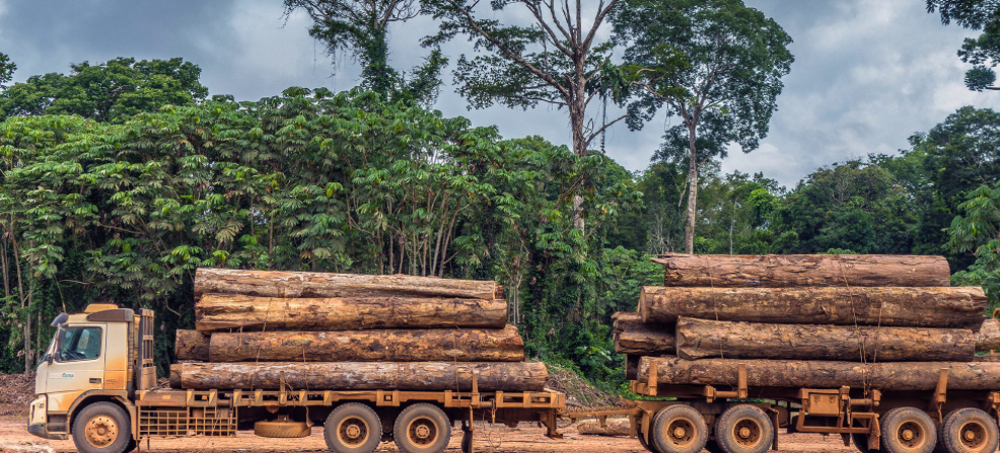 Satellite imagery shows that logging activity is spreading from peripheral areas of the Amazon toward the rainforest's core. (photo: Vicente Sampaio/Imaflora)
Satellite imagery shows that logging activity is spreading from peripheral areas of the Amazon toward the rainforest's core. (photo: Vicente Sampaio/Imaflora)
Tracking cut trees through satellite mapping data, the research found that logging activities cleared 464,000 hectares (1.15 million acres) of the Brazilian Amazon — an area three times the size of the city of São Paulo — between August 2019 and July 2020. More than half (50.8%) of the logging was reportedly concentrated in the state of Mato Grosso, followed by Amazonas (15.3%) and Rondônia (15%).
“Around 20 years ago, we feared that the forest would be devastated in the so-called ‘deforestation arch’ and the movement would migrate from the peripheral areas toward the central region of the Amazon,” said Marco Lentini, senior project coordinator of Imaflora, a sustainable development NGO involved in the mapping project. “Our map shows this is happening now: logging is going toward the Amazon core.”
He said the logging pattern was that of “frontier migration,” adding, “This is something that terrifies us. We have to stabilize this frontier.”
The research, released last week, was developed by the Simex network formed by four Brazilian environmental nonprofits: Imazon, Imaflora, Idesam, and Instituto Centro de Vida (ICV). The institutions say they set up the alliance to map, for the first time, logging in almost all of the Amazon. They managed to map seven of the nine states that make up the Brazilian Amazon — Acre, Amazonas, Amapá, Mato Grosso, Pará, Rondônia and Roraima — which together account for almost 100% of timber production from the rainforest.
Although the mapping was unable to specify the exact amount of trees illegally extracted from untouched forests, mostly of the illegalities were concentrated at the triple border between Mato Grosso, Amazonas and Rondônia, where intense logging activity was detected in an Indigenous reserve and a conservation unit, according to Vinicius Silgueiro, territorial intelligence coordinator at ICV, a nonprofit based in Mato Grosso. “Protected areas in this region show a large presence of logging and low level of fiscalization, with a lot of signs of illegality.”
The Sismex map covers areas where the Federal Police made the largest seizure of illegal timber in Brazil’s history earlier this year, recovering 226,000 cubic meters (8 million cubic feet) of wood on the border between Amazonas and Pará states. This operation triggered the ouster of the controversial minister of environment, Ricardo Salles, in June, after he reportedly asked for the release of the wood.
Ten municipalities accounted for almost 200,000 hectares (494,000 acres) of logging, five of them in Mato Grosso, two in Amazonas and the remaining in Roraima, Acre and Pará. Most logging activity, 78%, reportedly occurred on privately owned properties. Legal permits are often used to mask logging in restricted areas through a process known as tree laundering, according to the findings.
A more detailed study developed by Imazon focused on Pará shows that over half of the logging in the state has not received any governmental authorization. From August 2019 to July 2020, 50,139 hectares (123,896 acres) of forest were reportedly devastated, with 55% without authorization from environmental bodies. This represented a 20% growth over the 12 months before, when non-authorized logging totaled 38%, according to Imazon.
The map developed by the Simex network shows concentrations of logging activity in the state of Mato Grosso, followed by Amazonas and Pará. Image courtesy of Simex.Before the advent of the Simex project, only Pará and Mato Grosso had satellite-based maps identifying areas where logging has occurred. Imazon started monitoring Pará in 2008 and ICV joined the iniciative in 2013 by monitoring Mato Grosso. The institutions say that these states were their initial focus for data transparency due to high logging activities.
Logging for timber doesn’t clear forest area as extensively as deforestation does, and vegetation growth over logging sites can make visualization via satellite harder, according to Vinicius Silgueiro, territorial intelligence coordinator at ICV.
“With logging, different than deforestation, there is still some coverage by vegetation. We can identify scars in the forest made by the roads used to move the logs, as well as clear areas for storage. There is a whole infrastructure around logging that helps us find these areas,” Silgueiro told Mongabay in a phone interview.
In most states, however, he said it’s nearly impossible to verify when the logging activity is illegal, due to lack of transparency or technological barriers. Many times, he added, certificates for legal forestry activities are filed on paper, making it hard to cross-reference the database of certificates with the images. The only two states with digitized databases are Pará and Mato Grosso.
Another challenge is that the certificates allowing forest management give the location coordinates, but not the shape file — the digital map — of the area, which hampers efforts to identify through satellite imagery where illegal logging occurs, according to Lentini.
Despite these challenges, there are cases where it is very clear that the logging taking place is illegal, Lentini said: when it happens in protected areas like Indigenous reserves and conservation units. The study found that 6% of logging in the Amazon, or 28,112 hectares (69,466 acres), was in conservation units during the study period; 5% was in Indigenous reserves, at 24,866 hectares (61,445 acres). “These areas don’t have any kind of authorization for legal logging,” Silgueiro said.
A 2018 report by the Greenpeace, titled “Imaginary trees, real destruction,” highlighted the unreliability of Brazil’s forestry licensing and control systems, which it said makes it harder to tackle fraud.
“A critical flaw in the Amazon states’ forestry governance lies in the weakness of the licensing process for sustainable forest management plans,” the report said. For the most part, no field inspections are conducted before management plans are drawn up, or these inspections are of low quality, according to the report.
“This allows the forest engineers … to overestimate volumes or fraudulently add trees of high commercial value to the area’s forest inventory. State agencies subsequently issue credits for the harvesting and movement of this non-existent timber,” which will be logged from forests on Indigenous lands, protected areas or public lands, according to Greenpeace’s investigation.
Silgueiro, from ICV, said legal and illegal logging persist in proportions of around 60:40. “The more legal documentation there is for exploring the forest, the more illegal timber there is,” he said. He added that logging fraud will only stop once the whole process becomes traceable through technologies that help estimate the real volume of timber production and track each tree individually. “Traceability of production is essential,” Silgueiro said. “This technology already exists, but producing states are slow at adopting it.”
The environmental impact of illegal logging is immense. Recent studies show the Brazilian Amazon is now a net CO2 source, instead of being a carbon dioxide sink as would be expected, due to factors that include logging.
This article was originally published on Mongabay.
Follow us on facebook and twitter!
PO Box 2043 / Citrus Heights, CA 95611
Evening Roundup, May 28...plus a special thank you to our Contrarian family Featuring Jen Rubin, Katherine Stewart, Brian O'Neill, Jenni...
